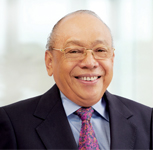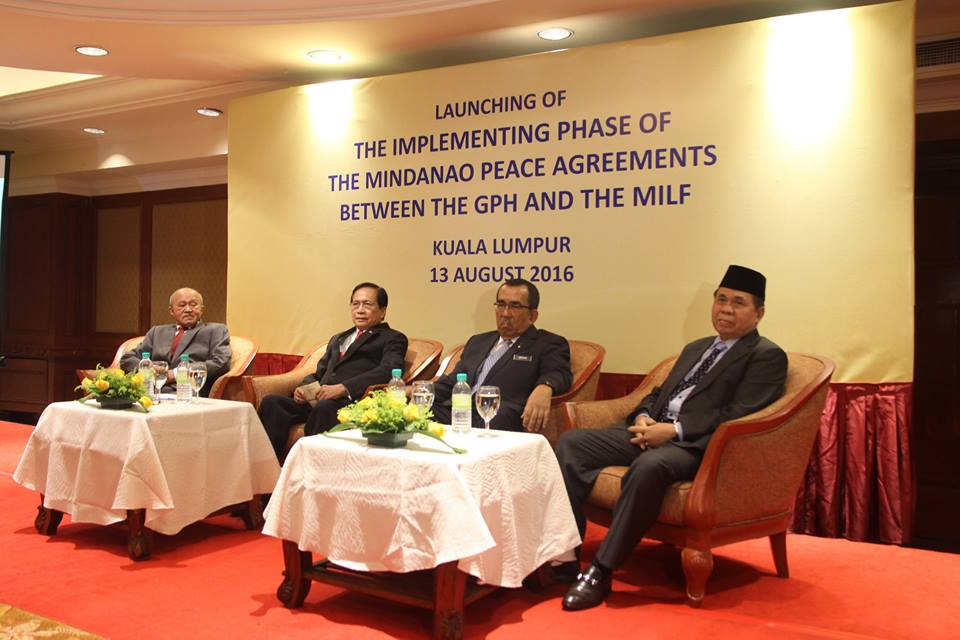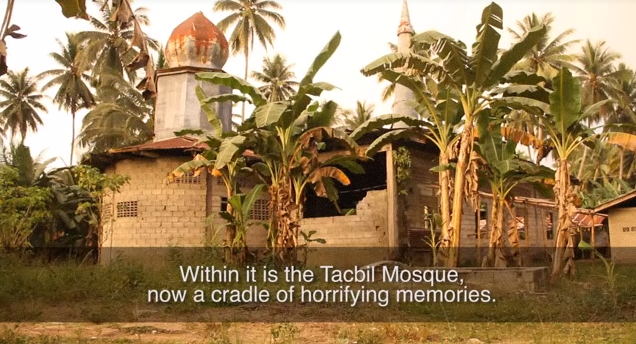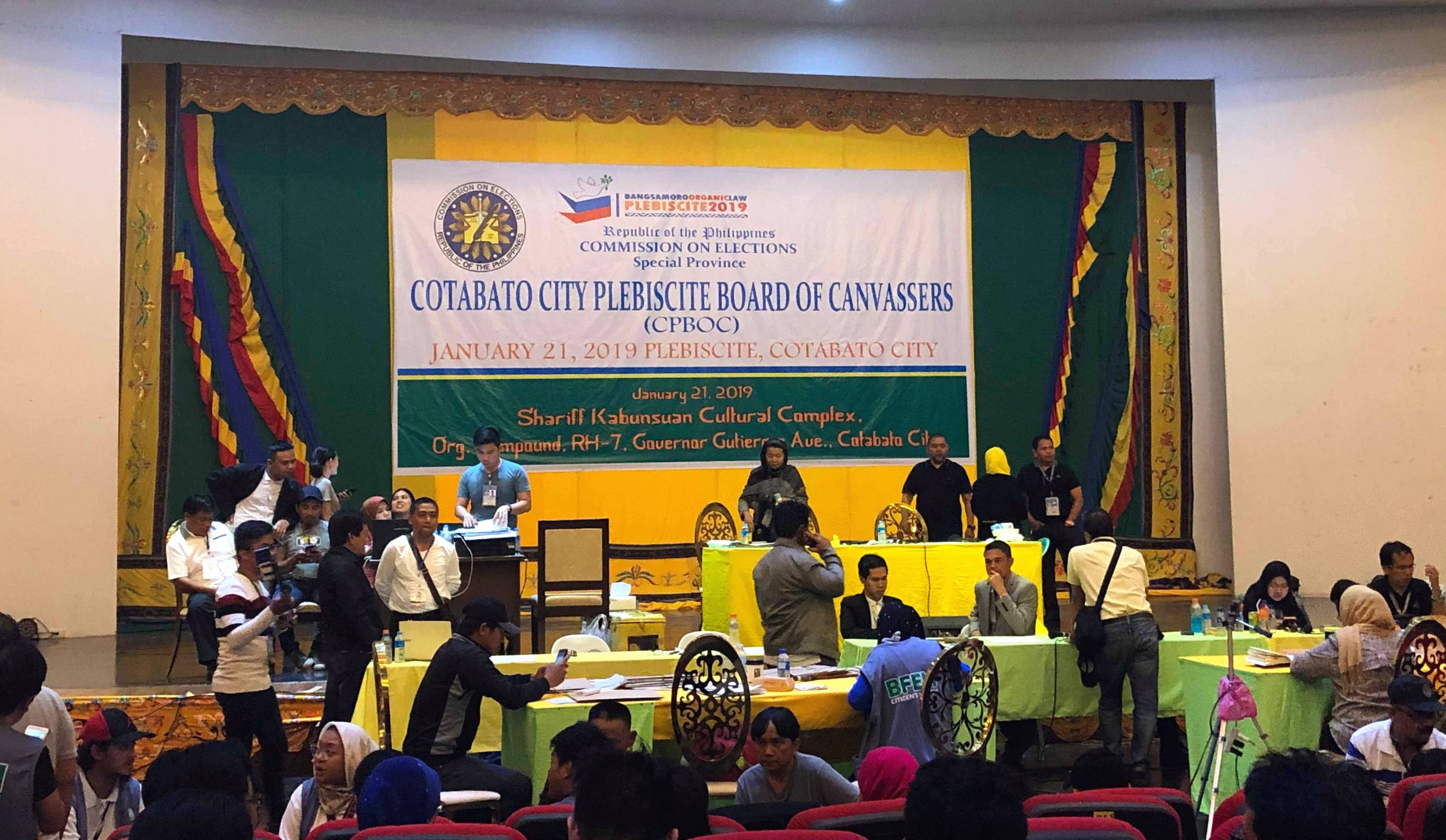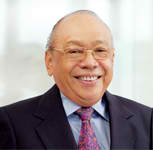
THE Philippines and Malaysia have agreed on a new facilitator in the government’s peace talks with the Moro Islamic Liberation Front (MILF), re-affirming the role Malaysia has played in the peace process for the past 16 years.
Tan Sri Zakaria Bin Abdul Hamid, 71, is the third Malaysian to act as facilitator in the talks between the Government of the Philippines (GPH) and the MILF. He replaces Tengku Datuk Abdul Ghafar Mohamed who passed away on Sept. 2, 2016. Like the late Tengku, Zakaria is the choice of Malaysian Prime Minister Najib bin Tun Haji Abdul Razak.
The first facilitator was Datuk Othman Abd Razak, an appointee of former Prime Minister Abdullah Badawi.
Zakaria’s appointment came after the Philippines reconsidered its position on the need for a third-party facilitator.
In a letter to the Malaysian Secretariat of the GPH-MILF Peace Process dated Jan. 4, GPH panel implementing chair Irene Santiago and her MILF counterpart Mohager Iqbal jointly reaffirmed the continued participation of Malaysia as Third Country facilitator.
The government had earlier informed Malaysia it was rethinking that role, since the peace process is already in the implementing stage.
Last November, hours before the scheduled bilateral meeting of Najib and President Rodrigo Duterte in Kuala Lumpur, the Philippines’ National Intelligence Coordinating Agency Director-General Alex Monteagudo informed the Malaysian side that the Philippine government would no longer accept the Malaysian facilitator but wanted the Malaysian International Monitoring Team (IMT) to continue, source said.
The Malaysian side sought clarification from Presidential Adviser on the Peace Process Jesus Dureza and was told that the Philippine side wanted a different label to the role that Malaysia is playing in the peace process because “facilitator” would connote an ongoing negotiation when they are actually already implement the Comprehensive Agreement on the Bangsamoro (CAB).
Malaysia officially informed Dureza of the appointment of Zakaria as the new GPH-MILF Peace Process facilitator in a letter dated Oct. 18, 2016.
Zakaria is currently the chairman of Landmarks Berhad, an investment holding company that expanded its business to the hospitality industry and property development. He served the Malaysian government for 33 years. The last position he held was as director-general of the Research Division in the Prime Minister’s Department, a strategic office that coordinates both the foreign and defense ministries, and provides policy advise to the Prime Minister on matters of international and domestic concern.
In a copy of his curriculum vitae attached to the Oct. 18 letter to Dureza, Zakaria listed his personal strengths, including excellent cross-cultural negotiation skills, crisis management, re-inventing organizational culture, change and direction, analytical assessment of strategic issues and requirements and visionary attribute.
“Tan Sri Zakaria Bin Ab. Hamid had been chosen based on his wide knowledge and experience in the peace process…The Prime Minister of Malaysia also firmly believes that Tan Sri Zakaria Bin Ab. Hamid would be neutral as the new facilitator of the GPH-MILF peace process,” said Malaysia’s letter requesting Dureza’s concurrence on Zakaria’s appointment.
He was instrumental in the turnover of Moro National Liberation Front (MNLF) founding chairman Nur Misuari to the Philippine government when the latter fled from rebellion charges and sought refuge in Malaysia. Interestingly, days before Duterte’s visit to Malaysia, Misuari was in Malacañang pledging his support for Duterte’s quest for federalism and peace in Mindanao.
In an interview on Dec. 27, Foreign Affairs Secretary Perfecto Yasay Jr. confirmed government was rethinking having a facilitator at this stage of the peace process, but that the IMT would stay. Other than the facilitator, Malaysia deploys security personnel in Mindanao acting as peacekeepers and overseers of the ceasefire agreement implementation.
“The framework had been completed. We don’t need a facilitator and Malaysia agreed to that. Maybe we can go to a higher level of monitoring and making sure that the entire process will be completed where we have gone past the stage of negotiation,” Yasay said.
Yasay said that both governments of Malaysia and the Philippines remain committed to the peace process and will pursue the roadmap together. “So by the time that we would have a Bangsamoro Basic Law (BBL), we would be getting into the amendment of the constitution as part of our intention to federalize and maybe integrate certain aspects of the amendments. These are things that we will be doing slowly and very carefully and no one is being left out.
The Philippines has embarked on a peace process to resolve the decades old problem of secessionism in the Southern Philippines that has killed more than 120,000 and displaced more than two million people in the Mindanao.
The peace talks began with the MNLF, and a peace agreement to end the protracted conflict in Mindanao was signed in 1996 providing for an Autonomous Region for Muslim Mindanao (ARMM). But that agreement split the biggest Muslim secessionist group and gave birth to the MILF.
Malaysia’s role as broker started in 2001, and there have been criticisms about it, given Philippines’ long-standing claim on parts of Sabah, which is occupied by Malaysia.
After 15 years of talking peace with the MILF, a Framework Agreement on the Bangsamoro (FAB) was signed October 15, 2012 and the CAB on March 27, 2014. It provided for the creation of a Bangsamoro Transition Commission (BTC) that would draft the BBL and would pave the way for the creation of a new autonomous political entity called the “Bangsamoro,” to replace the ARMM.
But the 16th Congress under the Aquino administration failed to pass the BBL. Under the new government, the process resumed with the drawing up of a Bangsamoro peace roadmap. Duterte will reconstitute the new and expanded BTC this month by naming 21 members, including MNLF leader Muslimin Sema. The new BTC is expected to finish the draft BBL by July 2017.
